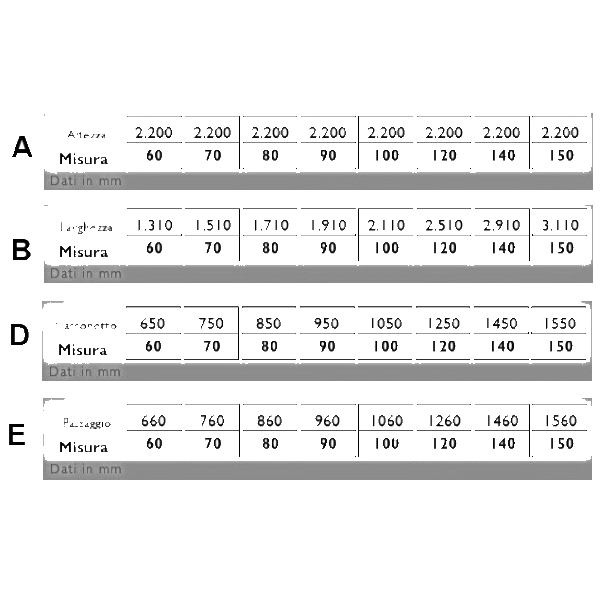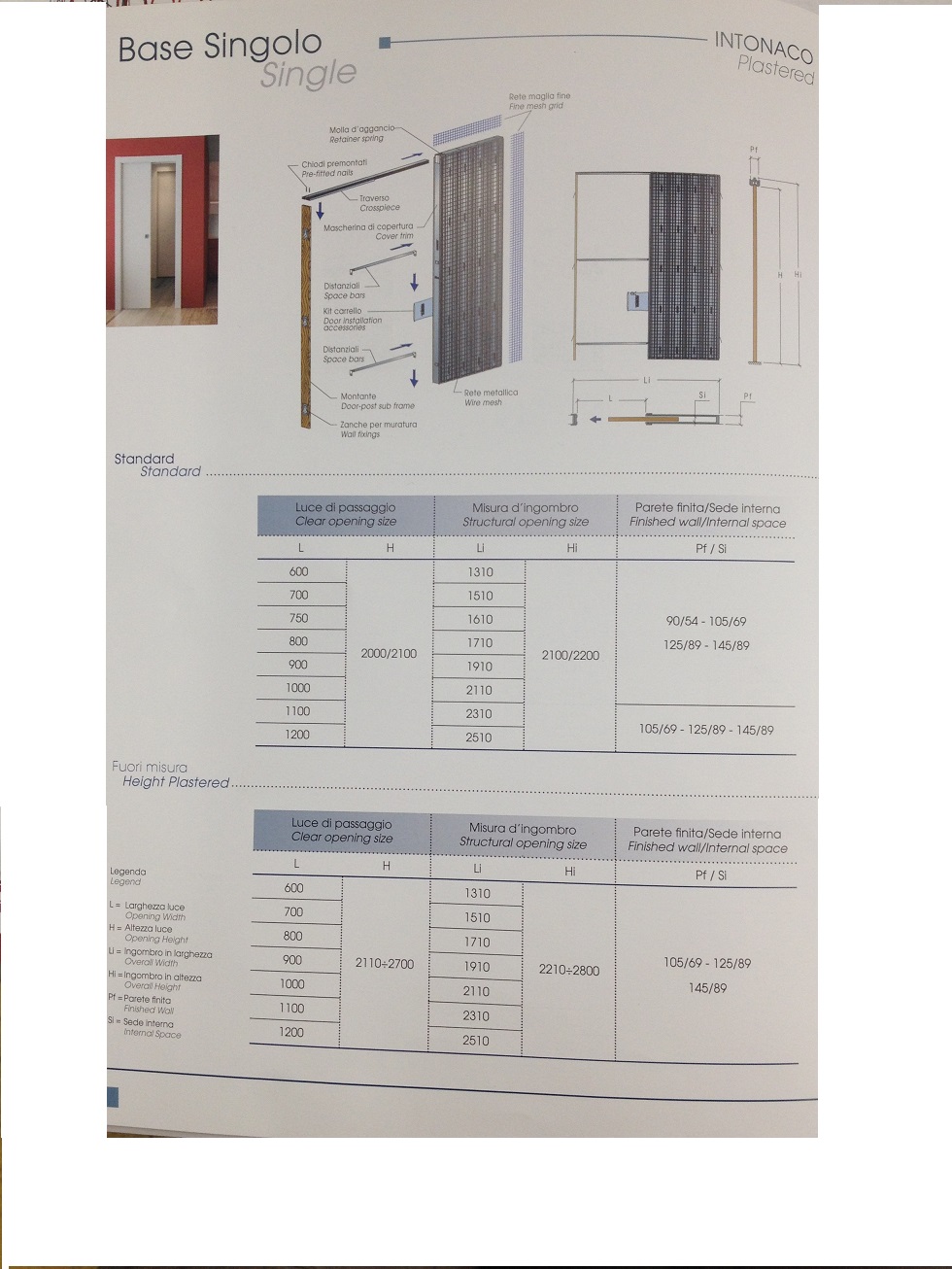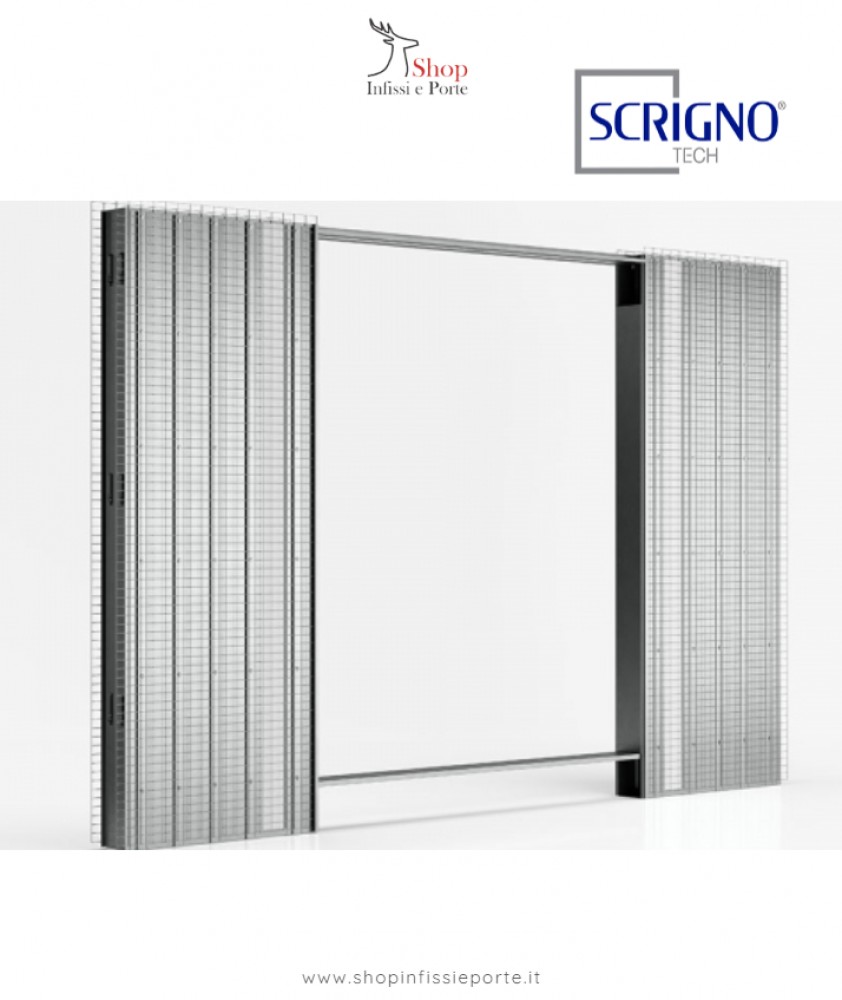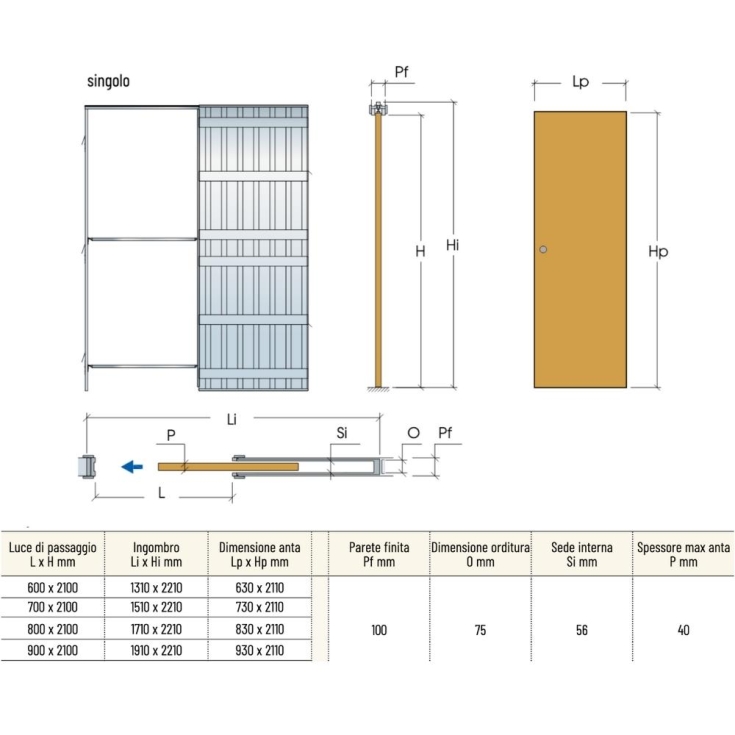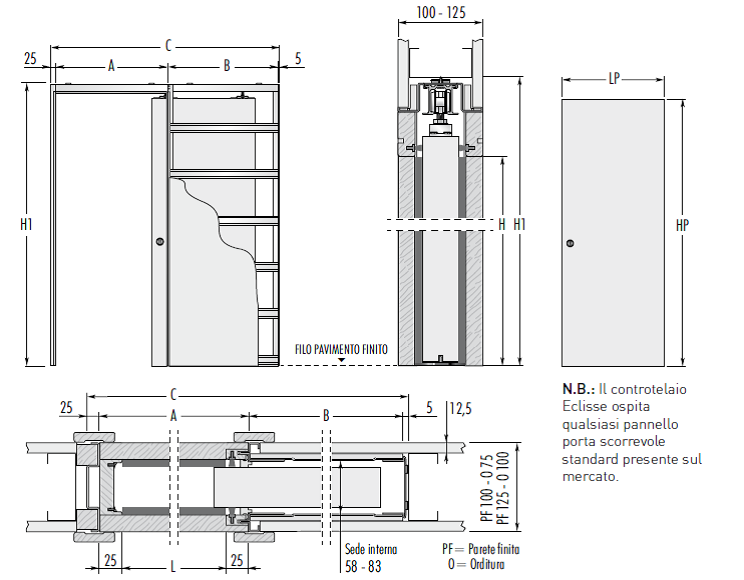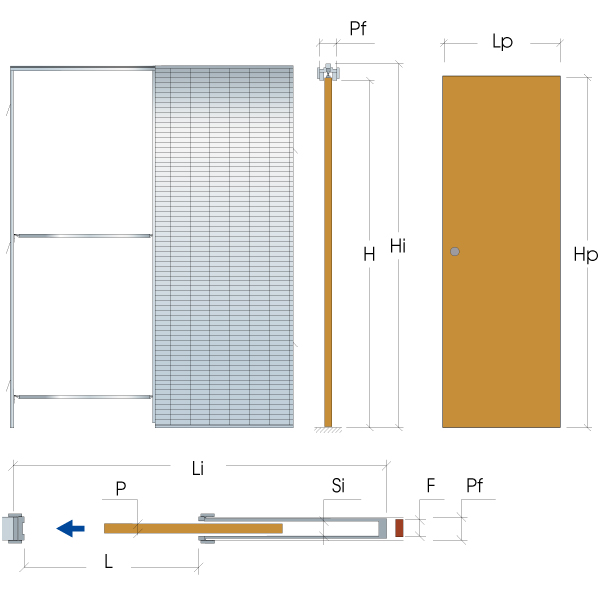
Controtelaio unico eclisse per porta scorrevole a scomparsa, modello per intonaco, 1 anta, misura 800x2000x108 mm, portata 100 kg | Tuttoferramenta

SCRIGNO SCRIGNOTECH - Controtelai per porte scorrevoli misure standard (pareti intonacate) – Gruppo Edile S.r.l.
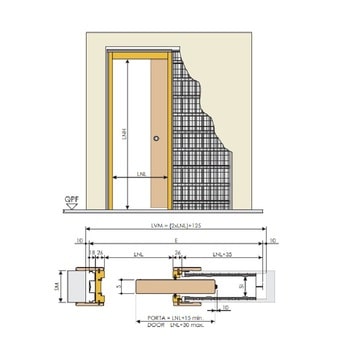
Controtelaio new space dierre per porta scorrevole a scomparsa, modello per intonaco, 1 anta, misura 800x2100x105 mm, portata 80 kg | Tuttoferramenta
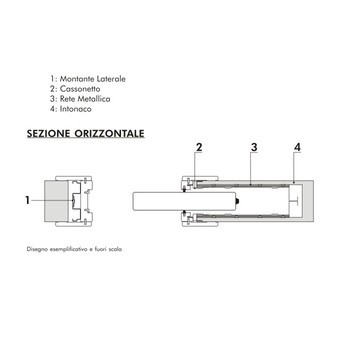
Controtelaio new space dierre per porta scorrevole a scomparsa, modello per intonaco, 1 anta, misura 700x2100x105 mm, portata 80 kg | Tuttoferramenta

Arckstone Rivenditore dei migliori marchi: Novellini, Palazzetti, Ceramica Sant'Agostino, Arblu, Zazzeri, Rubinetteria 3M, Ib, Raimondi, Montegrappa, Negrari... Mito Classico Controtelaio Porte Scorrevoli Intonaco Muratura Scorrimento Interno Base ...

